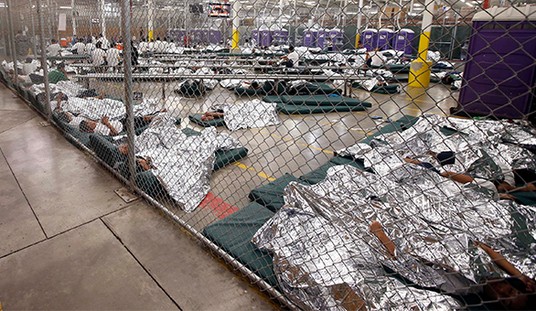At PJM, Matt Patterson writes that in retrospect, “historians will recognize the 20th century as the era in which the West began to consume itself from within. The process was twofold:”
1) A nearly century-long intra-civilizational civil war, encompassing both World Wars and the Cold War, which pitted the totalitarian and democratic strains of the West against one another in mortal combat. (Karl Marx, a German who wrote in England, is as much a Westerner as Thomas Jefferson.)
This conflict destroyed the losers and exhausted the victors, exacting a horrific cost in blood and treasure on the entire civilization. How many potential geniuses fell on the battlefields of Europe in the Bloody Century? What great innovations and advancements lay stillborn in the countless military cemeteries of the Continent? The intra-civilizational war was the greatest catastrophe in history — tens of millions of lives and trillions of dollars sacrificed — which left deep and lasting tears on the moral fabric of every Western nation, victor and vanquished alike.
2) Governments of the West began in the 20th century to gather more and more power over their citizens and their economic activities, establishing powerful redistributionist agencies to transfer wealth from producers to non-producers. “Welfare” was born. As the century progressed, even nominally free Western nations began to guarantee ever-greater measures of material comfort to citizens in the form of subsidized retirement and medical care programs.
While he’s right that the carnage was inflicted during the 20th century, the seeds were sown in the previous century. As Tom Wolfe wrote in (admittedly rather belated) response to Nietzsche’s declaration that “God is dead:”
The year was 1882. (The book was Die Fröhliche Wissenschaft [The Gay Science].) Nietzsche said this was not a declaration of atheism, although he was in fact an atheist, but simply the news of an event. He called the death of God a “tremendous event,” the greatest event of modern history. The news was that educated people no longer believed in God, as a result of the rise of rationalism and scientific thought, including Darwinism, over the preceding 250 years. But before you atheists run up your flags of triumph, he said, think of the implications. “The story I have to tell,” wrote Nietzsche, “is the history of the next two centuries.” He predicted (in Ecce Homo) that the twentieth century would be a century of “wars such as have never happened on earth,” wars catastrophic beyond all imagining. And why? Because human beings would no longer have a god to turn to, to absolve them of their guilt; but they would still be racked by guilt, since guilt is an impulse instilled in children when they are very young, before the age of reason. As a result, people would loathe not only one another but themselves. The blind and reassuring faith they formerly poured into their belief in God, said Nietzsche, they would now pour into a belief in barbaric nationalistic brotherhoods: “If the doctrines…of the lack of any cardinal distinction between man and animal, doctrines I consider true but deadly”—he says in an allusion to Darwinism in Untimely Meditations—”are hurled into the people for another generation…then nobody should be surprised when…brotherhoods with the aim of the robbery and ex
And of course, Nietzsche was but one of the “bearded God killers,” to borrow Martin E. Marty’s memorable phrase, in the 19th century, which set the stage for the next’s century’s early experiments in applied biology.










Join the conversation as a VIP Member